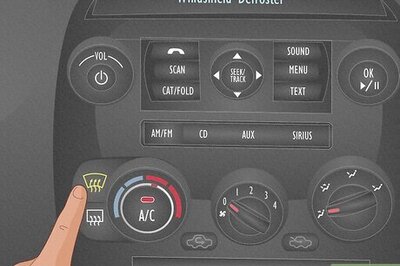
views
Global IT security firm Quick Heal Technologies on Wednesday said it detected more than 180 million threats on Windows devices of individual and enterprise users between April and June of this year. More than two million malware, 16,000 ransomware, 13,000 cryptomining malware, 141,000 exploits, and 40,488 potentially unwanted applications (PUAs) and adware were detected on a daily basis, according to the quarterly threat report released by Quick Heal Technologies and its enterprise security brand Seqrite.
"Cybercriminals are at a completely different level today than they were a few years ago. They are using novel technologies to drive increasingly-complex attacks and are targeting larger user bases," Sanjay Katkar, Joint Managing Director and Chief Technology Officer, Quick Heal Technologies, said in a statement.
"The latest threat report highlights this risk that individuals and businesses in India currently face with this evolution of the threat landscape," Katkar said.
According to data from the report, the Trojan Horse families retained its position as the most dominant malware in the second quarter of 2018, registering a quarter-on-quarter growth of four per cent.
The security experts at Quick Heal Technologies also identified a spike in the EternalBlue exploit, which was used for the WannaCry ransomware attack, one of the biggest global cybersecurity incidents ever seen.
Other key trends identified in the report include a significant increase in the number of ransomware attacks targeting the Master Boot Record (MBR) of infected devices and cryptomining.
The report also revealed the rise of cryptojacking as one of the most worrying security trends and warned about it becoming an "advanced threat" as it is the new source of getting direct monetary benefits to cyber criminals.
Cryptojacking attacks remain undetected for a long time and can often be used as a platform to launch other complex attacks.



















Comments
0 comment